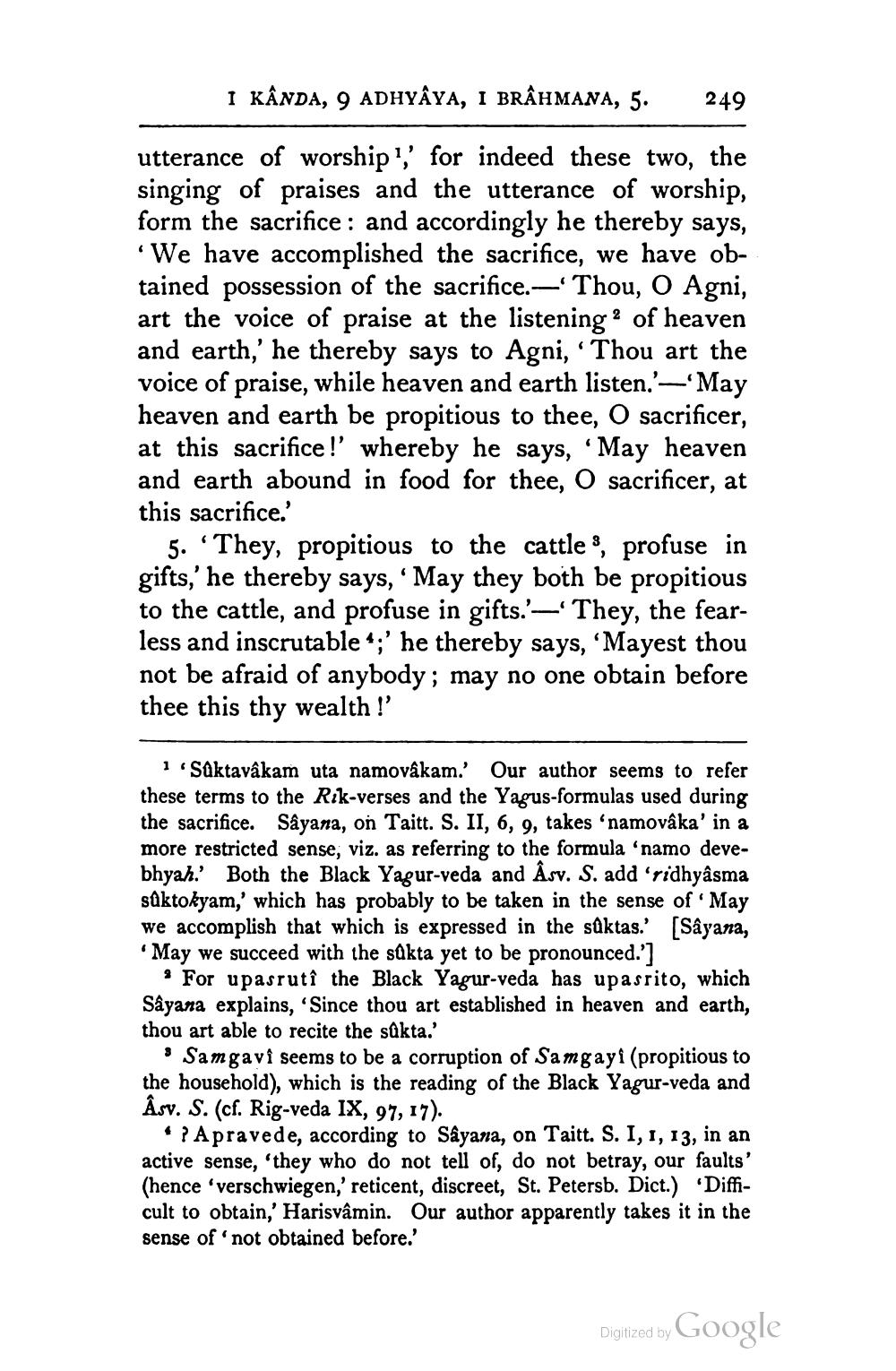________________
I KÂNDA, 9 ADHYÂYA, I BRÂHMANA, 5.
249
utterance of worship?,' for indeed these two, the singing of praises and the utterance of worship, form the sacrifice: and accordingly he thereby says,
We have accomplished the sacrifice, we have obtained possession of the sacrifice.—'Thou, O Agni, art the voice of praise at the listening 2 of heaven and earth,' he thereby says to Agni, 'Thou art the voice of praise, while heaven and earth listen.'— May heaven and earth be propitious to thee, O sacrificer, at this sacrifice !' whereby he says, “May heaven and earth abound in food for thee, O sacrificer, at this sacrifice.'
5. 'They, propitious to the cattle 3, profuse in gifts,' he thereby says, “May they both be propitious to the cattle, and profuse in gifts.'—'They, the fearless and inscrutable 4;' he thereby says, “Mayest thou not be afraid of anybody; may no one obtain before thee this thy wealth!'
1Saktavākam uta namovâkam. Our author seems to refer these terms to the Rik-verses and the Yagus-formulas used during the sacrifice. Sâyana, on Taitt. S. II, 6, 9, takes 'namovâka' in a more restricted sense, viz. as referring to the formula 'namo devebhyah. Both the Black Yagur-veda and Asv. S. add 'ridhyâsma sûktokyam,' which has probably to be taken in the sense of May we accomplish that which is expressed in the saktas.' [Sâyana, May we succeed with the sakta yet to be pronounced.')
For upasrutî the Black Yagur-veda has upasrito, which Sâyana explains, Since thou art established in heaven and earth, thou art able to recite the sakta.'
Samgavî seems to be a corruption of Samgayi (propitious to the household), which is the reading of the Black Yagur-veda and Âsv. S. (cf. Rig-veda IX, 97, 17).
. ?Apravede, according to Sayana, on Taitt. S. I, 1, 13, in an active sense, 'they who do not tell of, do not betray, our faults' (hence 'verschwiegen,' reticent, discreet, St. Petersb. Dict.) 'Difficult to obtain,' Harisvâmin. Our author apparently takes it in the sense of not obtained before.'
Digitized by Google




